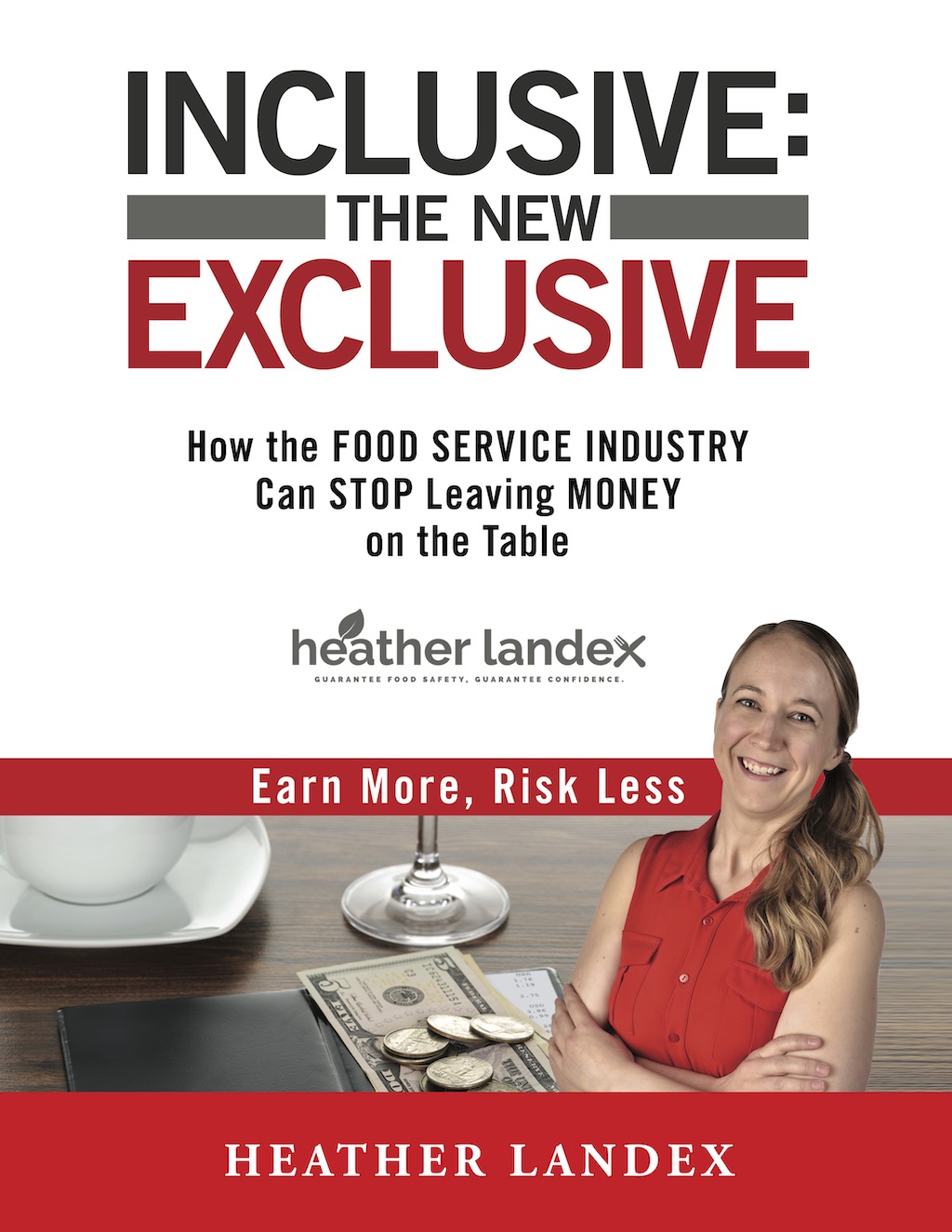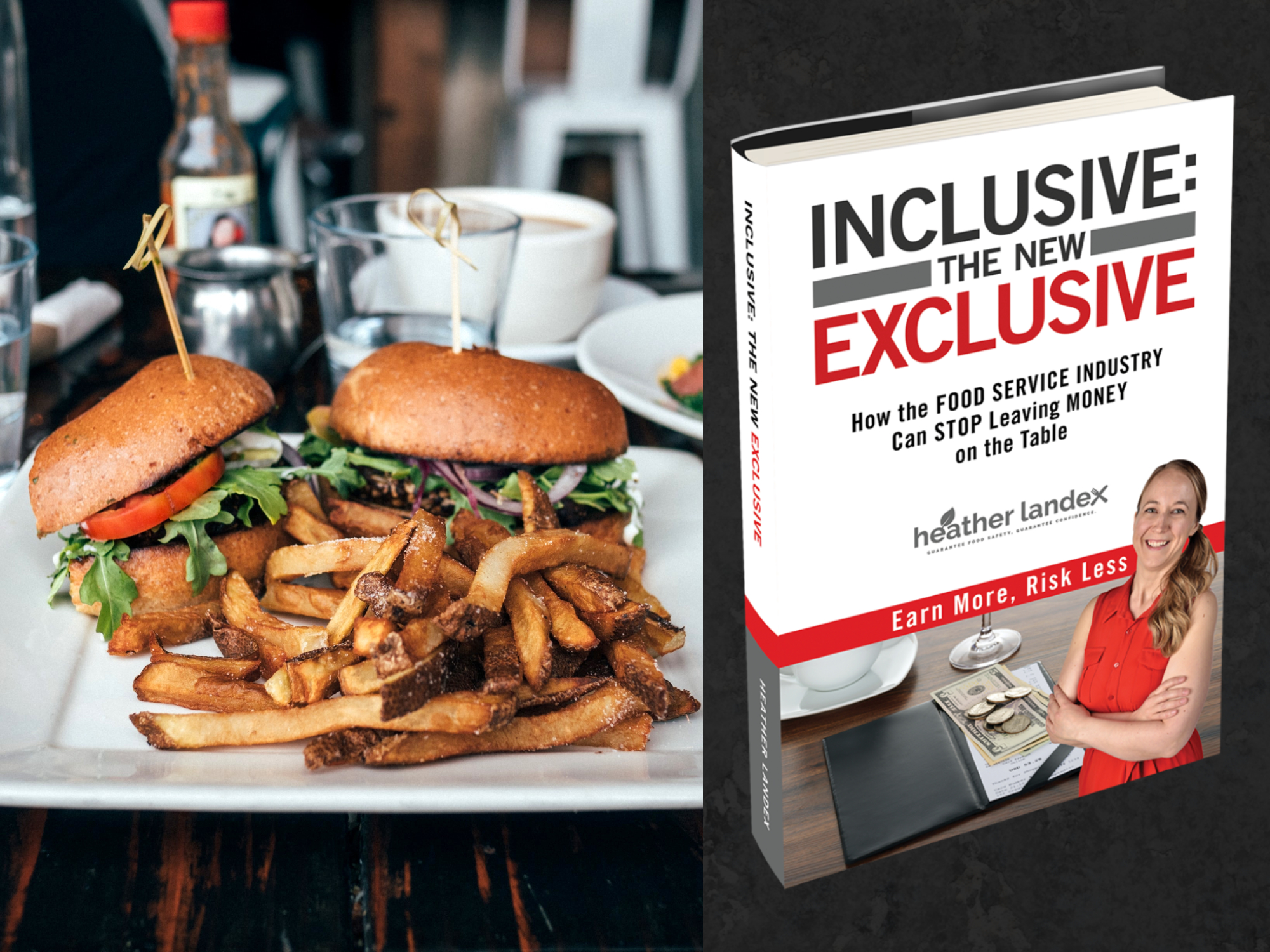Vegan & Allergy-Inclusive Food Businesses Can ‘Earn More & Risk Less’, Food Safety Expert Details In New Book
4 Mins Read
Foodservice businesses are leaving behind a huge opportunity if they fail to address the “ticking time-bomb” of rising allergy-related incidents and make the shift to become more inclusive, warns food safety expert Heather Landex. In her new book, Landex, a two-decade-long veteran of the industry, advises food companies to stop excluding the “significant and growing” numbers of vegans, people with food allergies, intolerances and dietary preferences.
After her own near-death allergy experience, food safety expert Landex decided to write Inclusive: The New Exclusive, her new book that makes not just an ethical case for the food industry to change its practices, but an economic case too. It serves as a tool for foodservice businesses, from restaurants to food chains and caterers, to see “how big a piece of pie they are currently neglecting”.
“Many people in the foodservice industry believe that less than 1 in 100 people have a food allergy, when [it’s] actually closer to 1 in 10,” explains Landex, an East Yorkshire native who now resides in Denmark. Prior to venturing into authorship, she worked as an advisor and consultant for the restaurant segment of BeVeg, the first and only ISO-accredited vegan certification standard.
“Unfortunately, they are turning away 10% of their potential customers at the door, plus whoever would have dined with them.”
Undertaking research into the market opportunity through over 50 expert interviews, including with Green Queen Media founder and editor-in-chief Sonalie Figuerias, Landex uncovers the “significant and growing minorities” of vegans, vegetarians and people with intolerances, allergies and other dietary preferences that the food industry is missing out on.
Many people in the foodservice industry believe that less than 1 in 100 people have a food allergy, when [it’s] actually closer to 1 in 10.
Supported by financial consultants Main Course Associates, Landex also drew on data compiled from an ROI calculator to estimate the lost revenue as a result of staying “exclusive”.
Being inclusive doesn’t just arm consumers with the information necessary to protect themselves from the rising numbers of allergy-related incidences, but protects the business too, from profit-hurting complaints, bad publicity and a shrinking consumer base.
This will be especially imperative as the restaurant industry begins to reopen from the pandemic, says Landex, who practices a vegan diet herself and estimates 10-15% higher returns for inclusive caterers as they rebuild in the post-Covid world.
One of the biggest trends that foodservice must take note of to become inclusive is the plant-based revolution, thanks to the growing swathes of flexitarian diners who now make up around 40% of the market. While not completely eliminating meat and dairy from their diets, these diners are choosing to eat vegan meals and visit plant-based restaurants when they dine out.
Food businesses should be willing to go the extra mile, ensuring they are allergy-friendly when it comes to use of animal-derived ingredients, because it future-proofs their businesses.
Adapting menus to offer a range of plant-based items will be crucial “if they want to remain in business over the next five years, or they face losing their customers to the competition,” says the author.
“Food businesses should be willing to go the extra mile, ensuring they are allergy-friendly when it comes to use of animal-derived ingredients, because it future-proofs their businesses,” Landex continues. “Guaranteeing safety for minority eaters will gain their confidence and create a very loyal following of repeat customers, plus whoever they bring along with them.”
While it may seem like a daunting task for restaurants unfamiliar with shifting trends and the ins-and-outs of food intolerances, dietary preferences and serious food allergies, Landex hopes to provide in Inclusive: The New Exclusive all the basic tools businesses need.
“Firstly, they need to adopt complete clarity and transparency regarding food ingredients and risk of contamination,” she advises, among the many recommendations made in the book.
“Inclusive businesses actively welcome and serve diners of all kinds, communicate with them exceptionally well and offer a variety of choices that take dietary preferences into account, whether they are a result of allergy or choice.”
“They can then reap the rewards of rave reviews and very strong organic marketing.”

Inclusive: The New Exclusive by Heather Landex is now available for pre-order here.
Lead image courtesy of Heather Landex / Unsplash.




